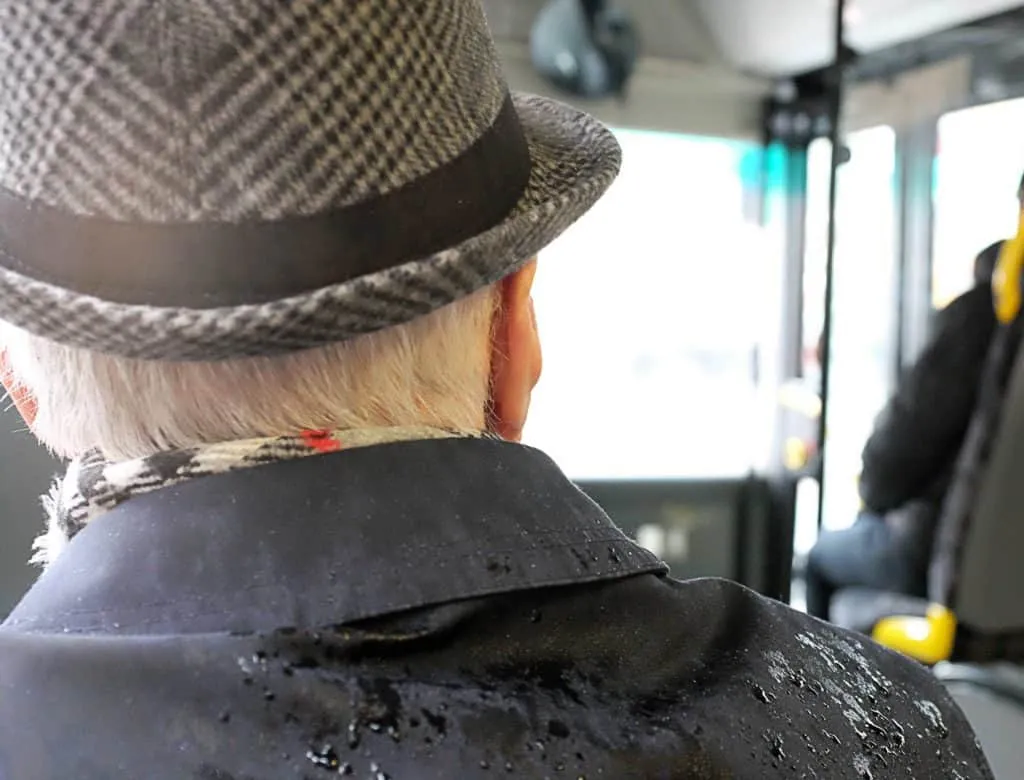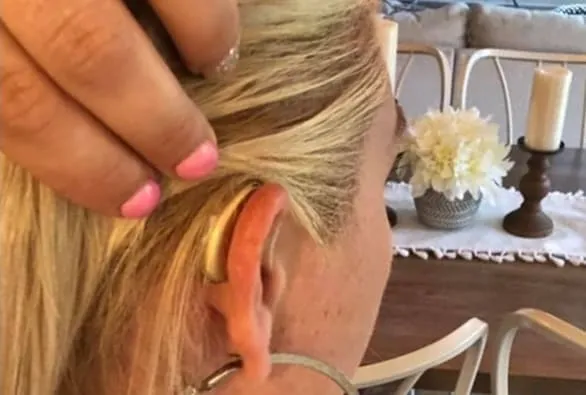Some people almost never take their hearing aids off and others seem to struggle to have the desire to wear their hearing aids. As I have been an audiologist for the last 8 years I have talked to many of them and understand all the reasons why someone does or does not choose to wear their hearing aids.
So when should you wear your hearing aids? Hearing aids should generally be worn during all waking hours of the day. However, take them off if they would get wet if there is loud noise (loud enough that someone would typically wear hearing protection), in high wind, or when you desire a break from the noisy world.
Always wear hearing aids for:
- Always wear hearing aids for:
- One-on-one conversations
- Group conversations
- Church
- Car trips
- Watching TV
- Restaurants
- Quiet activities even if you don’t think you need to hear anything
Don’t wear your hearing aids for:
- Swimming
- Out in the rain for a long time
- Anytime when you should be wearing hearing protection (shooting, loud concerts, mowing lawn)
- In the car with the window down (due to wind noise)
- When your spouse is yelling at you (wink wink)
Let me explain further how I would counsel my patient to wear their hearing aids.
Wear Hearing Aids As Much As Possible

The people who wear their hearing aids all day long every day become much more successful with their hearing aids when compared to people who only wear their hearing aids part-time. The reason is that their brain knows what to expect and so it can process the incoming sound better.
Sometimes patients object and say well I live alone and do not need to wear them at home because there is nothing to hear. However, I would say by hearing the environment sounds (even if it is just the page-turning on a book) allows your brain to recalibrate itself on how much sound it should expect.
If a person only chooses to wear hearing aids while going out of the house you will generally feel that the hearing aids are too loud. Because noises outside of your house are already louder than at home and then with the hearing aids we just make them even louder still.
I realized that wearing hearing aids all day may take some getting used to so further down in the article I will speak more about this.
Don’t Wear Hearing Aids in These Situations
Avoid Getting the Hearing Aids Wet.
Hearing aids are so much more water-resistant than they used to be but water is still an enemy of electronics. I tell my patients that if it is raining outside and they are just walking from their car into a store the hearing aids are going to be fine and you can keep them on.
If you plan to be outside in the rain for a while such as when you are golfing, working in the yard or watching a football game you should take the hearing aids off or protect them from the water.

You can protect hearing aids from getting wet by wearing some kind of brimmed hat. Even having it extend past the ears by a half-inch will keep the hearing aids safe.
Another option to keep the hearing aids completely safe from water is to use Eargear (affiliate link to Amazon). It is essentially a waterproof, dustproof sock that goes over the hearing aids. Many patients who do not ever want to take their hearing aids off find that Eargear cuts out any worry of having moisture-related repair issues.
Related Article: What To Do If Your Hearing Aids Get Wet
Don’t Sleep in With Your Hearing Aids
It is best to pull your hearing aids off at night or anytime when you are going to take a nap. This is for a few reasons, first laying on your hearing aid may cause a pressure sore in your ear and secondly your hearing aid may fall off and get lost in the sheets.
If you are concerned about not hearing your alarm clock I would recommend a super-powered alarm clock for you, see my article on the best alarm clock for hearing aid users.
Wind Noise Can Be Very Annoying
Hearing the wind blow across the microphones of your hearing aids can be very problematic. So it is your choice to wear the hearing aids or just pull them off.
Things like driving in the car with the window open can be intolerable so you can be the judge whether to wear your hearing aids in the wind or not. If you are in the wind often, shield your hearing aids from the wind using Eargear that was mentioned above.
New Hearing Aid Users Should Wear Hearing Aids As Much As Possible
Getting new hearing aids is tough and sometimes even just getting an adjustment on your hearing aids is tough. Basically, your hearing loss has gradually developed over many years and in one appointment the audiologist programs the hearing aids and you go back into a very noisy world. Getting used to this noise especially high-frequency sounds that you have forgotten about can be quite a challenge.
There are two ways to work up to full-time use of hearing aids. I would consider full-time use of the hearing aids to be at least 8 hours a day. Ideally, you would wear them all waking hours. However, depending on the degree and severity of your hearing loss this may or may not be necessary. With a more mild loss is it less important for the number of hours the hearing aids are worn.
Acclimatization Period With Hearing Aids
As it takes a while for the brain to adjust to accepting hearing aids (see Pubmed research article for more information). I give this explanation to patients.
New hearing aids are annoying because your brain is picking up on all the differences that you are hearing. As in you hear a new sound and your brain is not familiar with that sound and so it draws it to your attention. After a week or two, the brain has figured out what it should pay attention to and what is just not important. So stay the course, hearing aids will start to seem more natural after just a few weeks.
But what do you do if things are really annoying you? My recommendation is to keep wearing the hearing aids but use the volume control on the hearing aids and turn the hearing aids down a few steps.
Another theory out there is to just wear the hearing aids for a few hours a day and gradually work the amount of time up to full-time use. I tend to think that this prolongs the acclimatization period and makes it, in the end, more work. But each person is different and you can try either method.
Related Questions
How To Know If You Need A Hearing Test? If you wear hearing aids you should have a hearing test at least once a year. If you are over the age of 65 you should also have a hearing exam once a year. If you are younger and feel that your hearing has changed or noticed a change of tinnitus, get your hearing checked.
How many hours a day should you wear hearing aids? Hearing aids should be worn full-time. I consider my patients to be fully successful if they wear their hearing aids at least 8 hours per day. However, they should strive for all waking hours. Many patients wear hearing aids for 16-17 hours a day.
Is it OK to sleep with hearing aids? It is not recommended to sleep with hearing aids due to the possibility that they can cause pressure sores if you lay on them. They are also likely to fall out and get lost in the sheets.

